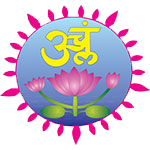
Yeruka
- The Yeruka, often referred to as the "self" or "I," is a complex psychological construct representing a person's sense of identity and individuality. It encompasses thoughts, beliefs, desires, and emotions, shaping one's perception of themselves and their interaction with the world.
- While the Yeruka serves crucial functions in daily life, excessive identification with it can lead to feelings of separation, attachment, and suffering.
- The Yeruka, the Jeeva or the self, is the moola-prakruthi or moola-maya, responsible for creation.
- Due to its nature, maya causes the Yeruka to immediately forget and misapprehend its own creation, resulting in entanglement with suffering and sorrow.
- From birth, the Yeruka identifies itself with the body, mind, and intellect, leading to various psychological and emotional patterns that shape an individual's perception and behaviour.
Yeruka’s Positive Nature:
- It is essential for self-preservation and survival, encouraging the care of physical health and well-being.
- Creates a sense of individuality, fostering the expression of unique qualities, thoughts, and talents, contributing to the world of experiences.
- Helps set goals and pursue achievements, contributing to personal and collective growth and success.
- Assists in analysing situations, solving problems, and making decisions based on rational thinking.
Yeruka’s Negative Nature:
- Deep attachment and identification with the body and mind create an illusion of separation, leading to feelings of loneliness and disconnection.
- Attachment to comfort and well-being can result in excessive desires and materialistic pursuits.
- Strong identification with the body often leads to a fear of death or deep concern about physical mortality.
- Comparison with others can lead to feelings of inadequacy, fostering competition and jealousy.
- Negative emotions such as frustration, anxiety, and dissatisfaction arise from unmet desires and unrealistic self-image.
- Limits spiritual growth and deep self-introspection due to attachment to the body and mind, self-imagined concepts, opinions, and mental constructs.
Therefore, to cultivate a healthier relationship with the Yeruka, it's crucial to strike a balance between identification with the body and mind and recognizing the deeper, transcendent aspects of the self.
Practices like yoga, pranayama, meditation, self-inquiry, and self-awareness can help individuals gain perspective on the ego's influence, fostering a holistic understanding of their true nature. This can lead to a reduction in negative behaviors and a greater sense of inner peace and interconnectedness with pure consciousness—“The Silence.”
Unfolding of Yeruka:
- Through spiritual sadhana, the Yeruka disassociates from the body, mind, and intellect, experiencing a state of bliss called Sat-Chit-Ananda. This state, known as pure consciousness or Shudha Yeruka, is accompanied by knowledge referred to as Atma Gnana. When the Shudha Yeruka annihilates the anthakarana, it merges with the Brahman, and the knowledge is referred to as Poorna Gnana. Achala Siddhantha embraces the theory of karma and rebirth, conceiving moksha as the liberation of Yeruka from the clutches of expectations and sorrow more than the cycles of births and deaths.
- According to Achala Philosophy, enlightenment is not complete with the realization of the Self. The final stage is annihilation of anthakarana. This is the state of Soonya or Nirvana, merging with the Brahman.

